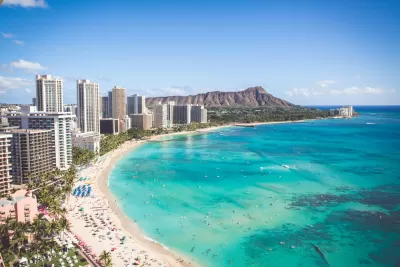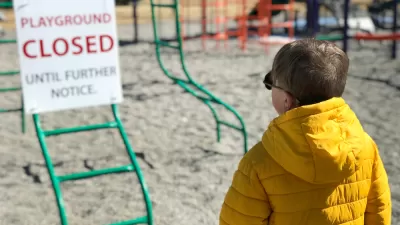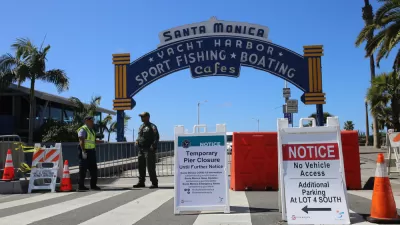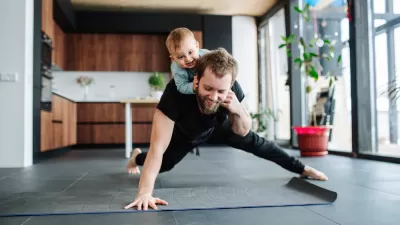Beaches and parks on Oahu are closed to the public once again as the city attempts to control the spread of COVID-19.

Can you imagine Honolulu without its beaches? Well, the beaches are not actually disappearing. But they are closed to the public until September 4th. Parks and trails (with few exceptions) are also off-limits as COVID-19 cases have spiked on Oahu, prompting authorities to act in an effort to prevent large gatherings of people in public spaces.
In the midst of the COVID-19 pandemic, beaches, parks, and trails across the U.S. have become very popular as more and more people venture outside for recreation. Numerous articles and studies have also documented how people are spending more time outdoors for their physical and mental health and well-being. Thus understandably, some Honolulu residents are disappointed and frustrated by the government's decision.
As Christy Stanton, one of the individuals interviewed for this Honolulu Advertiser article, said “I understand about the need to stop the virus from surging, but I think parks are where people can exercise and keep social distance in small household groups — we need it especially when people aren’t working and are cooped up.” There are, however, exceptions to the closures. Most notably, surfers are still allowed to get in the water; they are just not allowed to hang out on the beach. This provision is keeping those who surf happy, with their sentiments captured by Sean Steele who said the closures “don’t really affect me, I just surf.”
The next few weeks will be tough for Honolulu residents. After all, spending time in the beautiful outdoors is a key component of the slowed-down, low-stress island lifestyle. Let's hope that the closures will help to stop the spread of COVID-19 in Honolulu and that residents will be able to return to their beloved beaches, parks, and trails soon.
FULL STORY: Recreationists react to closures of city and state parks, beaches and campgrounds

Maui's Vacation Rental Debate Turns Ugly
Verbal attacks, misinformation campaigns and fistfights plague a high-stakes debate to convert thousands of vacation rentals into long-term housing.

Planetizen Federal Action Tracker
A weekly monitor of how Trump’s orders and actions are impacting planners and planning in America.

In Urban Planning, AI Prompting Could be the New Design Thinking
Creativity has long been key to great urban design. What if we see AI as our new creative partner?

King County Supportive Housing Program Offers Hope for Unhoused Residents
The county is taking a ‘Housing First’ approach that prioritizes getting people into housing, then offering wraparound supportive services.

Researchers Use AI to Get Clearer Picture of US Housing
Analysts are using artificial intelligence to supercharge their research by allowing them to comb through data faster. Though these AI tools can be error prone, they save time and housing researchers are optimistic about the future.

Making Shared Micromobility More Inclusive
Cities and shared mobility system operators can do more to include people with disabilities in planning and operations, per a new report.
Urban Design for Planners 1: Software Tools
This six-course series explores essential urban design concepts using open source software and equips planners with the tools they need to participate fully in the urban design process.
Planning for Universal Design
Learn the tools for implementing Universal Design in planning regulations.
planning NEXT
Appalachian Highlands Housing Partners
Gallatin County Department of Planning & Community Development
Mpact (founded as Rail~Volution)
City of Camden Redevelopment Agency
City of Astoria
City of Portland
City of Laramie





























